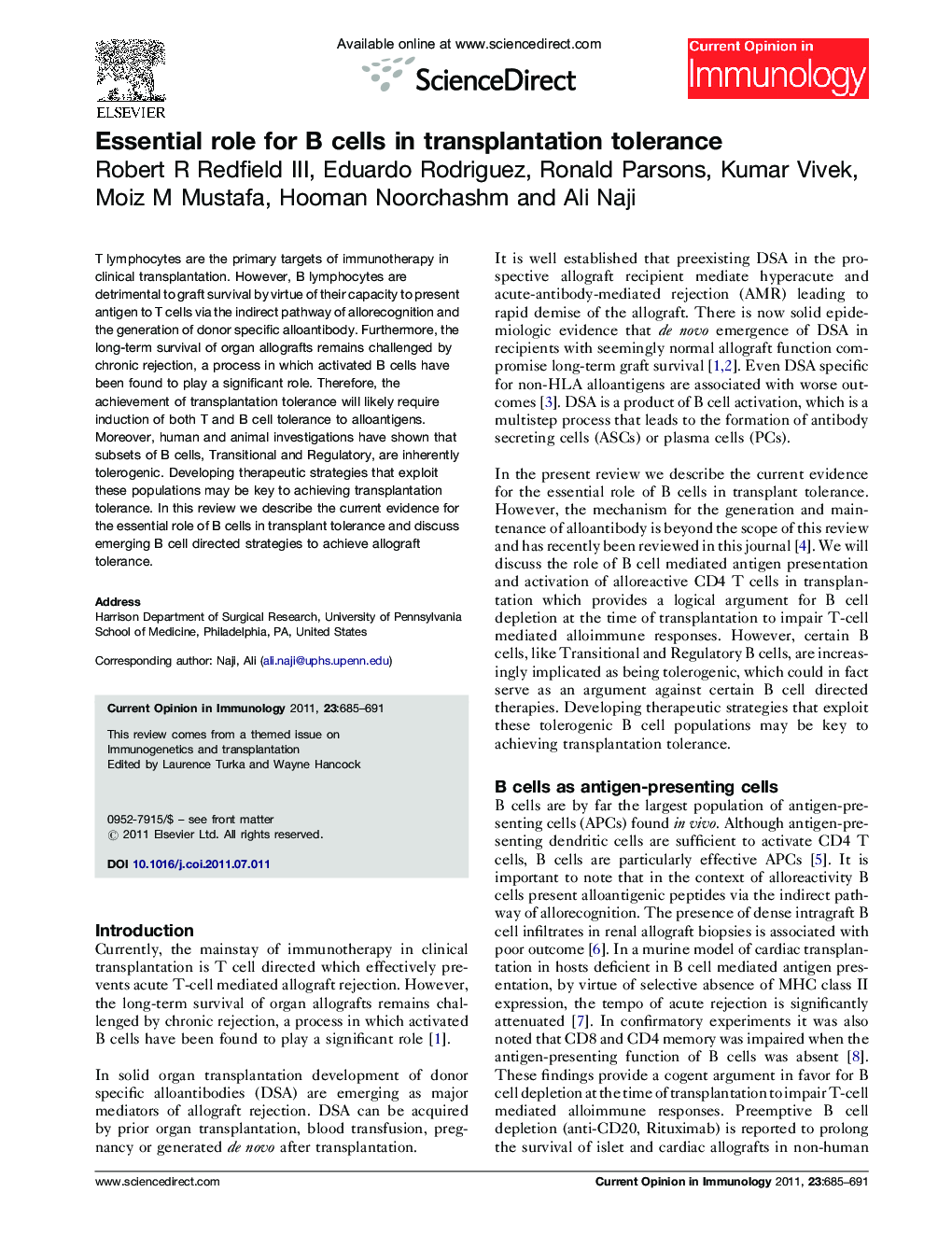| Article ID | Journal | Published Year | Pages | File Type |
|---|---|---|---|---|
| 3346054 | Current Opinion in Immunology | 2011 | 7 Pages |
T lymphocytes are the primary targets of immunotherapy in clinical transplantation. However, B lymphocytes are detrimental to graft survival by virtue of their capacity to present antigen to T cells via the indirect pathway of allorecognition and the generation of donor specific alloantibody. Furthermore, the long-term survival of organ allografts remains challenged by chronic rejection, a process in which activated B cells have been found to play a significant role. Therefore, the achievement of transplantation tolerance will likely require induction of both T and B cell tolerance to alloantigens. Moreover, human and animal investigations have shown that subsets of B cells, Transitional and Regulatory, are inherently tolerogenic. Developing therapeutic strategies that exploit these populations may be key to achieving transplantation tolerance. In this review we describe the current evidence for the essential role of B cells in transplant tolerance and discuss emerging B cell directed strategies to achieve allograft tolerance.
► Transplantation tolerance requires a tolerant B cell compartment. ► B cells as antigen-presenting cells can impact T cell function both in a positive as well as a negative manner. ► Transitional B cells and B regulatory cells are emerging as playing a crucial role in B cell transplantation tolerance. ► Exploiting pre-immune tolerance mechanisms at the time of transplantation may delete alloreactive specificities from the recipient repertoire. ► Different B cell directed therapies may have differential effects on B cell subsets, and thus tolerance, and need to be studied carefully.
